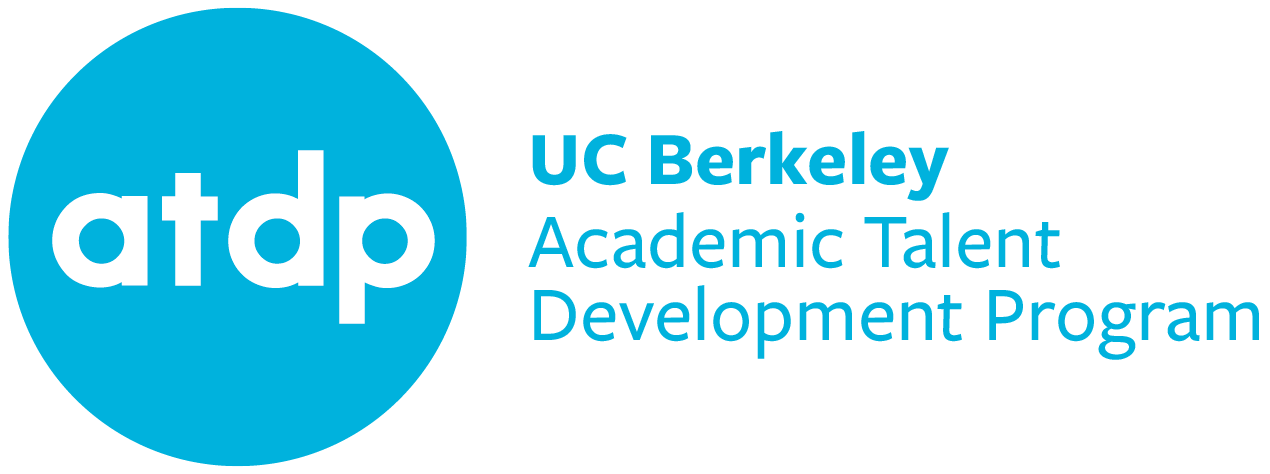Inside this issue…
Features
- Explorations Exposed: a photo gallery
- The ATDP Challenge
Week 2 Announcements
ATDP & Campus Resources
- Meet Your Counselors!
- Tutoring for ATDP Classes
- Explorations Schedules and Locations
- UC Berkeley Libraries
- Guest Wi-Fi Access
- Parking & Transportation
Previous S’12 Issues
From the Faculty Director
As Week 1 draws to a close there are a variety of things going through your minds. Some of you are saying, “Wow, this is wonderful. I can’t believe that I learned so much in one week.” Others are thinking, “What did I get myself into? Help!” Whether your thoughts are exactly these or somewhere between these extremes, welcome to the real world of ATDP where learning a lot is front and center. Consider that you have already covered 15 days of schoolwork in 5-unit courses and 30 days of schoolwork in 10-unit classes. Whatever the class you are taking this summer, from languages and literature to the fine arts, mathematics, and the range of sciences (computer, natural, or social), there are several common elements that you should consider. I’ll briefly review some of these.
First, your teachers are striving to have you master the content of the domain by the end of the program. Mastering the content is more than simply getting a good grade. Mastering the content means understanding the material and being able to apply the knowledge in multiple contexts. Mastering the domain indicates that you are prepared to complete a more advanced course in the same area. If you are indeed master of a domain, you understand both what you know well and what you do not know.
Second, success will require guided and deliberate practice and study. The teacher is your primary guide here, and the in-class exercises and homework from your teachers are intended to develop and hone the skill sets that you need. However, students also serve as guides for each other, and remember that tutoring can also be another way to access support and practice. The sign-up sheets for tutoring will be up outside 4320 Tolman Hall—the ATDP Counseling Office—from next Monday (June 25). You need to sign up at least a day in advance to get the time slot that you want.
Third, you need to be motivated and committed to achieve success. Motivation refers to the incentives that are guiding your actions and can be internal (e.g., wanting to learning more about this topic), external (wanting to get a good grade), or both. But motivation without task commitment is not useful. Task commitment means expending effort and persevering in support of attaining your goal. Motivation sets the direction that you want to go in and task commitment is the engine that takes you down the path. Attaining mastery in any content domain requires time, so you need to arrange your schedule such that you have ample time to complete your homework, review the material, and prepare for the upcoming classes.
A few paragraphs back, I mentioned understanding what you know and what you do not know. This is a simple and perhaps simplistic definition for a complicated construct called metacognition, which is a key variable in successful learning. Next week, I’ll briefly review some aspects of metacognition in the hope that you will use it not only here at ATDP but in all learning situations that you encounter into the future.
![]()
Faculty Director
